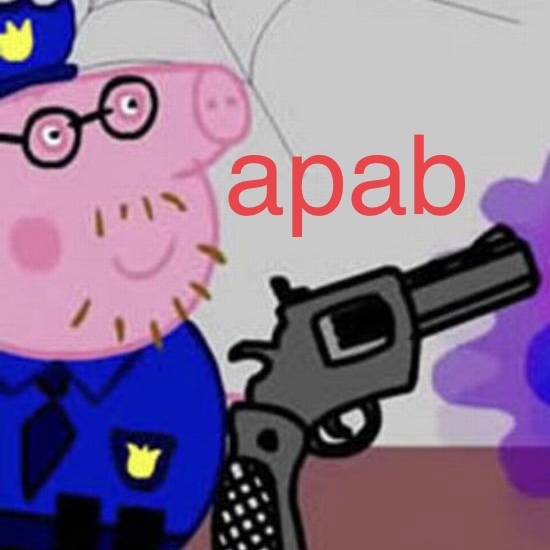When telling us that we'd have to memorise portions of the periodic table for exams in uni, my professor also pointed out that there is not a single chemistry lab in the world that doesn't have a periodic table somewhere on the wall and testing us this way was a waste of time.
my physics profs hated memorization, and gave us extensive formula sheets for exams, plus let us bring a sheet with whatever we wanted on it
I had some professors that only implemented limits on cheat sheets because they noticed an adverse effect when students would bring more than they could reasonably use for a test and run out of time.
The act of making a good cheat sheet also has the effect of not needing that cheat sheet much, its like tricking students into studying things for understanding rather than forcing memorization.
I made every cheat sheet in like 10 minutes by screenshotting each chapter summary and any equations I saw.
in Thermo, it was just the scaled images of each solution to every homework we did, and then I could copy that work while substituting the question's values to get an A-
hot take: using a calculator to look up 5+8 is a waste
Unless you're really drunk, then it's ok
idk, I think a lot of anti-communist padding in popular non-fiction comes from 'I'm sure I heard this somewhere'.
A lot of traditionally "good" students will complain about open book exams though, since the questions generally tend to require you to go beyond the rote text book ones.
For instance, in 1st year phys the final tutorial question was open book, gave you an extra possible 5% above 100% and was simply "calculate the total power output per year of Wolf 359." A full third of the class complained it was an unfair question.
What actually is the focus on memorising for? Like even my English lit exams i had to memorise the quotes i was going to use for an essag question i didn't know yet.
How does this serve capitalism?
systems don't have to be good they have to be good enough
our education system basically produces as many people as we need taught to the standard we need. It isn't better because it doesn't have to be and institutions have inertia
Related to liberal philosophy and psychology, I think, the whole "rational actors" perspective of the human being. That we are machines that take some input and spit out an output in reliable and accurate ways. The ones who don't are ignored as part of humanity to maintain the definition.
Another way to look at education is that it is a factory line to output workers to exploit for labor. The defects are discarded, and the ones who make it out are the ones who somehow take any input and reliably accurate and exploitable output (labor)
Which is why graduates of most fields have no experience and function on cultivated instincts like memorization. Only when a worker works with their actual hands, so to speak, do they learn real knowledge of their labor. This is how education used to be, an apprenticeship sort of model, which you still see in certain trades and fields like the medical field.
Memorization predates capitalism. So I'd look for reasons in pre-capital societies
a large portion of my education was "shut up and do what you're bloody well told"
to such an extent that part of me does despite my knowing better resent people who won't
if when you learned geometry for example you also learned about Pythagoras and the ancient Greeks
that would slow it down quite a bit though. Are you sure you aren't just more interested in history and philosophy than maths. Because I did get taught historical context along with my maths and science lessons and found it hopelessly boring.
Maths would do better to be taught as the creative subject it is. I had a really fun maths teacher who taught us how once you understand how an equation works you can apply it to solve a variety of problems in interesting ways.
I think the way schools teach obedience is less in the subjects themselves but the constructed social atmosphere. The calling people sir, the being grouped into classes and forced to stand in lines, we had one PE teacher that would make us do punishments from WW1 for backtalking (there's some historical context for you!) the fact it was a collective punishment also didn't help
Maths would do better to be taught as the creative subject it is. I had a really fun maths teacher who taught us how once you understand how an equation works you can apply it to solve a variety of problems in interesting ways.
Would you say that you'd extrapolate that sort of thinking to lots of other things in life?
I agree that letting kids chose what to study is a good thing but I think that's more for older kids for a number of reasons.
1 - they need some experience with the subject to know if they like it and it would be a shame if they gave up on maths or history entirely because of a bad impression at the very beginning stage when if they got to know the subject better they might love it
2 - young children if left to their own devices probably won't do the early childhood work they need to. Children mature as they age and I would argue it's abusive to give them responsibility for their decisions before they are old enough to make them properly
3 - society and the children themselves do need them to have a baseline level of knowledge in various subjects.
Sure, but different students approach maths in different ways. Some prefer applied math with clear, preferably cool, use cases. You want to teach those the rocket equation and orbital mechanics first.
Other's want everyday or civil applications. Or historical context of how the problems were developed.
Still others want pure math and proofs and the really abstract stuff and how it fits into modern bleeding edge math.
And still others are reading Russell and Whitehead at age 13 and should have math taught from a philosophy perspective.
yeah but there are limited resources per student (although we grossly underprioritise education children are our future)
I'm not an expert on this stuff though I'm just basing my thinking on my own school experience
As I understand it we imported it from China because it was a system that allowed education at greater scale than Europes previous system of having a conversation with the examiner. It lets lots of people sit the same exam at once
to say capitalism strives for greater efficiency is false it strives for greater scale
Now we stick with it because we've been doing it 200 years and people are used to it
It’s much easier to make and grade an exam that’s based on memorisation than on understanding. Such exams are also less prone to biased grading.
Looking forward to the Communist utopia where doctor has to look up the difference between glucagon and glycogen
This but unironically, double checking prevents errors and you make more mental connections when you look things up.
That's it. I don't intentionally memorise anything. Never could. I realised that path was not for me as a six-year old with a key part in the Nativity who remembered some of their lines but none in the right order. When it comes to my work, though, I'm like an encyclopaedia because I meaningfully engage with the same content so often that it sticks. (At least, I think that's what you're saying, minus the Nativity part.)
the maoist uprising against the landlords was the largest and most comprehensive proletarian revolution in history, and led to almost totally-equal redistribution of land among the peasantry
Honestly good. Students learn to just memorize what they need for the test and no further, then dump most of that afterwards. "memorizing" and retaining are different things
If modern China's not bourgeois then explain this Dengists

The Prussian model of memorization and taking notes worked back when it was a small number of students learning from experts in niche areas. Now that we have printing presses and you are not expected to reference your college notes in your professional career the model has outlived it's usefulness
Is this really a thing is China? Holy shit, I knew our education sucked but I wasn't aware how much better it was elsewhere (probably because of said education system failing me)
This is a very Mao thing, he hated people being too obsessed with reading and quoting rather than understanding and exploring. I don't think it's especially representative of modern China though, which has moved back towards the bourgeois memorization fetishism
Nowadays, no. GaoKao is basically all memorizing except for essays part of the exam. Even then, you have memorization to do to for the essays (structure, arguement, etc.)











